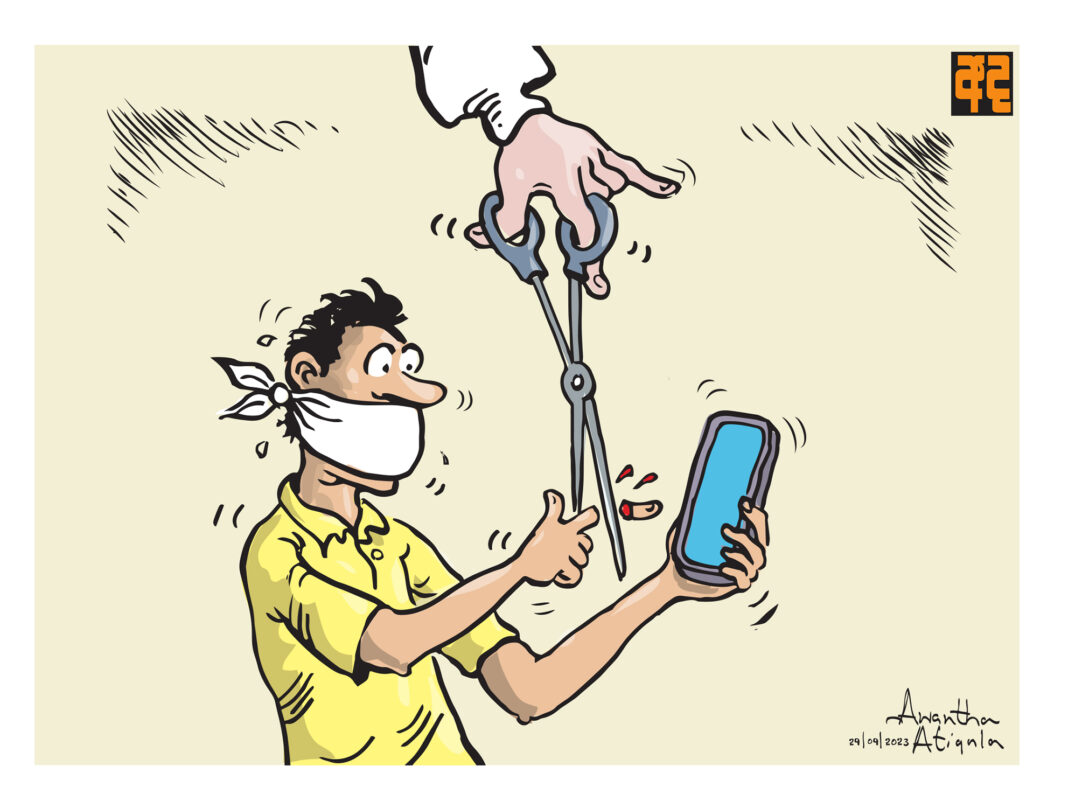Attorney General under fire for failure to study Online Safety Bill properly
The Attorney General’s Department had not studied the Online Safety Bill properly when it was first gazetted, President’s Counsel Dr Jayampathy Wickramaratne has said.
The government first gazetted the Bill on 15 September 2023.
“Then, we went to the Supreme Court against it and at the court the Attorney General’s Department officials said they would present over 30 amendments to the Bill. The Constitution says that when a Bill is presented, the Attorney General must attest that it is not against the Constitution. So, it appears that the Attorney General has not properly studied the Bill.”

Dr. Wickramaratne added that sources within the government told him that the Bill had been drafted by the Ministry of Media but presented by the Ministry of Justice. He mentioned that on many occasions, the government had agreed before the Supreme Court to amend Bills that were approved by the Cabinet.
“We are given these amendments by the court itself. The whole purpose of gazetting these Bills is for the people to read and understand. These amendments at the court undermine the whole point of gazetting a Bill.”
“The parliamentary debate about the Online Safety Bill was limited to two days, and it is obvious that the government wants to pass the Bill immediately,” he added.
“This will have a devastating impact on the freedom of expression of the people. This is the consensus of most. Even liking a Facebook post is expressing an opinion. Given how broad the definitions of this Act are, people can be hounded for even liking a post that the government doesn’t like.”
Wickramaratne said that most of the public discourse now takes place on the Internet. People used social media and WhatsApp groups to share ideas and disseminate information.
“Two elections are coming up soon, and a lot of debates and campaigns will take place online. We fear that the acts are election-targeted. Other countries take years before such bills are passed.”
The government also wants to suppress people’s objections to its economic policies, he said.
Dr. Wickramaratne mentioned that the judiciary does not have the power to review Bills that are passed. In the first Constitution of independent Sri Lanka, people could challenge Bills once it became obvious that these Bills had scary implications.
“If we could go to court against the Online Safety Bill once it’s passed, the situation wouldn’t be as grave. As it is, even if the Supreme Court understands the gravity of the Bill, there is nothing the judiciary can do about it because we can’t go before the court.”
Wickramaratne said the Anti-Terrorism Bill, too ,will be debated soon. There is a lot of criticism towards this act, too. These are Bills that should be debated in depth, and it’s better if they are passed with the consensus of the opposition.
“The Anti-Terrorism Bill was first presented in March 2023, and there was a lot of opposition. The government withdrew the Bill but presented a new draft in September 2023. There was a lot of opposition to that, too. The government then promised to address the concerns raised by local and international parties. We expected the government to issue a gazette with a new draft. But nothing of that nature took place. The Minister of Justice presented to Parliament the same Bill he presented in September 2023. The Minister said he has come up with a new definition for terrorism, but that’s not in the Bill he presented a few weeks ago.”
Dr Wickramaratne said when the Anti-Terrorism Bill was challenged in the Supreme Court, the Attorney General might present amendments at that stage. “No one has any clue as to what amendments the government will bring,” he said.
